Doctor of Philosophy in Neuroscience - Neurobiology and Anatomy

学历文凭
Ph.D.

专业院系
Neuroscience

开学时间

课程时长

课程学费

国际学生入学条件
IDP—雅思考试联合主办方

雅思考试总分
6.0
- 雅思总分:6
- 托福网考总分:60
- 托福笔试总分:160
- 其他语言考试:NA
CRICOS代码:
申请截止日期: 请与IDP联系 以获取详细信息。
课程简介
相关申请
 预科
预科 奖学金
奖学金 实习机会
实习机会 在校学习
在校学习 跨境学习
跨境学习 校园授课-线上开始
校园授课-线上开始 在线/远程学习
在线/远程学习
开学时间&学费
学费信息仅供参考,请与IDP联系以获取详细信息
| 开学时间 | 时长 | 学费 | 地点 |
|---|
学校排名

世界排名163
数据源:
泰晤士高等教育世界大学排名
关于罗切斯特大学

罗彻斯特大学(罗切斯特大学University of Rochester,U of R)是全美国顶尖的研究型学府之一,在这里提供非常个人化的学习尺度。罗彻斯特大学在顶级研究型大学中,保持着最小有最多的跨院系交流的传统。小型的班级规模加之1:10的低师生比例,使得学生与教职员之间产生更多的互动。作为一所坐落于友善大学城之中,罗彻斯特大学具有全球影响力的顶级自主选课型研究学府,罗彻斯特大学引导学生从广泛的自由度中找到个性化确定的关注点。至毕业时,学生们已学会如何去追求自己的所爱,并将其作为创新的驱动力。师资 和在校学生一样,罗彻斯特大河校区的教授来自美国全境及世界各地。罗彻斯特大学的教授都致力于成为学生终身学术研究生涯中的伙伴。很多学生会跟随一位教授,主修几门课程并加入教授的项目,这些坚定的、富有激情的知名学者们从不将研究与授课分开。 罗彻斯特大学(罗切斯特大学University of Rochester,U of R)的国际师资是有一支为满足学生需求而挑选的精英团队。几乎所有罗彻斯特大学的教授和职员都拥有在各自领域中可获得的最高认证,都有着丰富的经验以引导促进学生学习。罗彻斯特大学希望尽可能提供给每个学生最好的教育,因此实行小班教学,以便让每个学生都能获得导师一对一的指导。平均班级师生比为1:10。英语项目 在某些情况下,没有达到大学英语要求的学生可以参加该大学的学术目的英语课程(EAPP)从而获得有条件录取。EAPP是一门两学期的课程,让学生们有更多的时间专注于英语写作,批判性阅读和研究技能。此课程的重点是开发沟通技巧,为在美国的社会和学术交往做好准备。 学生通过罗彻斯特大学本科申请流程进入EAPP课程。EAPP课程没有单独的申请途径。EAPP课程的目标是通过增强学生在多种学术及社交场合中的英语口语及书写能力,来巩固这所大学的国际成员。此项目通过教授EAPP听说和EAPP批判性阅读,推理和写作课程,全年组织社交活动,以及鼓励参加校园俱乐部和活动获得更多的跨文化交流。研究生院与就业 建校以来,无数罗彻斯特大学(罗切斯特大学University of Rochester)的毕业生成为了诺贝尔奖得主、奥斯卡奖得主、作家、发明家、政府领袖、演员、执行总裁、宇航员及歌剧演唱家。他们贡献于罗彻斯特的传承,并继续积极投身其中,慷慨捐助母校,并指引着新生关于学业和事业的抱负。实习 罗彻斯特大学(罗切斯特大学University of Rochester,U of R)致力于帮助学生获得实习机会借此帮助他们获得经验。提供的资源帮助学生知道他们所需要寻找的实习种类,定位有效的实习职位搜索引擎,以及帮助学生修改简历和求职信。每一步罗彻斯特大学都陪在学生身边。罗彻斯特大学的学生们在洛克希德·马丁公司、波音公司、IBM、微软,雅培实验室、陶氏化学公司等诸如此类的公司获得实习经历。奖学金 所有申请人,无论国籍,都会被纳入绩优奖学金的考虑范围。竞争绩优奖学金
本校相关课程

Master of Science in Education Policy
学历文凭
Masters Degree
开学日期
课程费用总额


教育管理理学硕士-高等教育学生事务
学历文凭
Masters Degree
开学日期
课程费用总额


教育管理理学硕士-高等教育
学历文凭
Masters Degree
开学日期
课程费用总额


Master of Science in Educational Administration
学历文凭
Masters Degree
开学日期
课程费用总额

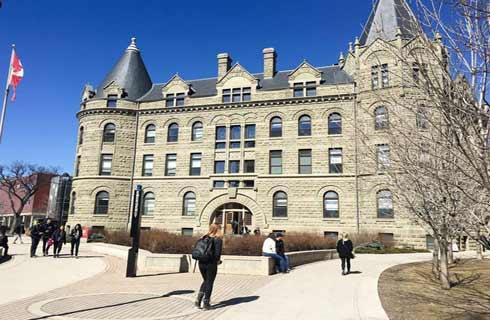
Master of Science in Applied Behavior Analysis and Human Development
学历文凭
Masters Degree
开学日期
课程费用总额


ESOL教学理学硕士(英语对其他语言讲者)
学历文凭
Masters Degree
开学日期
课程费用总额

其他相关课程
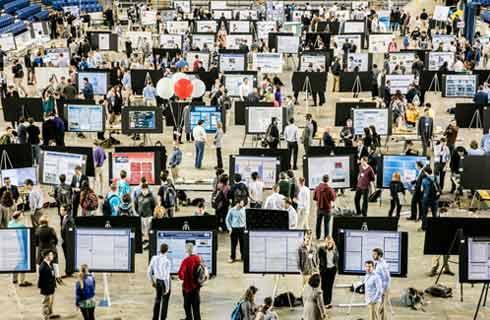
Master of Science in Neuroscience
 匹兹堡大学
匹兹堡大学学历文凭
Masters Degree
开学日期
课程费用总额

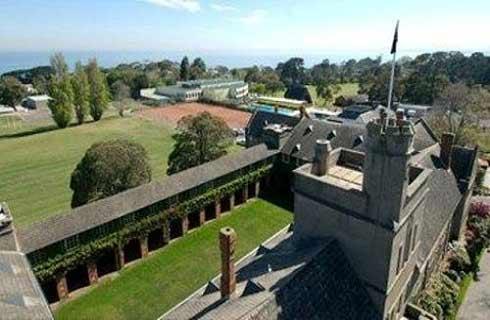
心理学文学硕士-认知和行为神经科学。
 乔治梅森大学
乔治梅森大学泰晤士高等教育世界大学排名:426
学历文凭
Masters Degree
开学日期
课程费用总额

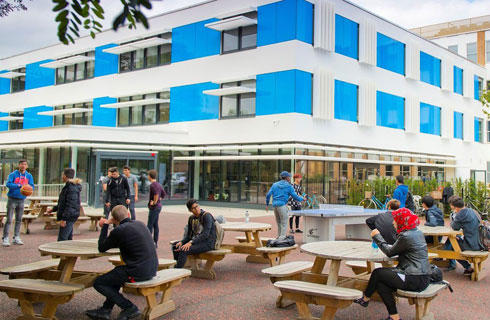
神经诊断技术艺术副学士
 贝尔维尤学院
贝尔维尤学院学历文凭
Associate Degree
开学日期
课程费用总额

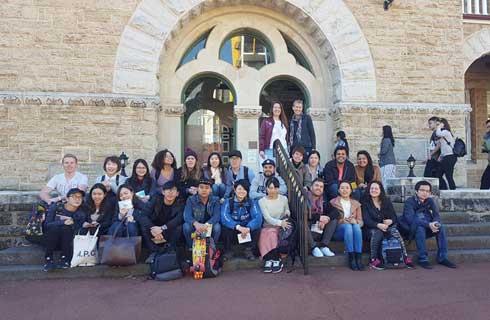
神经科学理学学士-Neuromotor(Honours)Co-Op
 布鲁克大学
布鲁克大学学历文凭
Bachelor Degree with Honours
开学日期
课程费用总额


Doctor of Philosophy in Neuroscience
 加州大学洛杉矶分校
加州大学洛杉矶分校泰晤士高等教育世界大学排名:19
学历文凭
Ph.D.
开学日期
课程费用总额


Bachelor of Arts in Neuroscience and Behavior (Premed)
 圣母大学
圣母大学泰晤士高等教育世界大学排名:194
学历文凭
Bachelor Degree
开学日期
课程费用总额










